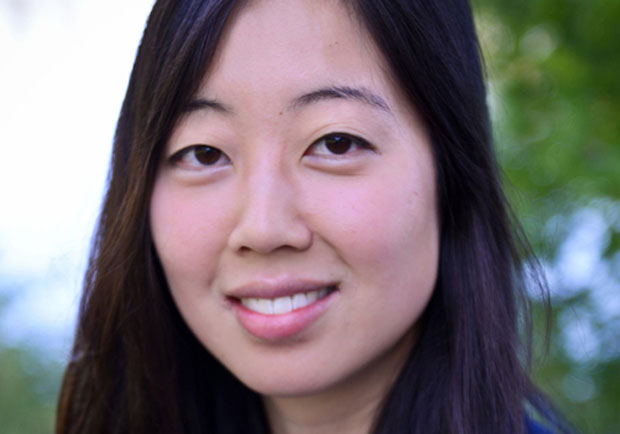On a recent Sunday morning, Jenny Yang stood beside a giant wooden cross and made a case for immigration reform to members of an evangelical church.
"As Americans, we have a responsibility when the laws are not working for the common good to change them," she intoned from the pulpit.
The talk was part of a broader, cross-country effort to persuade evangelicals to back the bipartisan immigration bill that's working its way through Congress.
Yang, 33, is one of the leading voices behind the Evangelical Immigration Table, a coalition of influential pastors and lobbyists working to drum up support for reform among believers and members of Congress.
As the vice president of advocacy and policy at World Relief, the humanitarian arm of the National Association of Evangelicals, she frequently appears in the media urging a path to citizenship for the nation's 11 million undocumented immigrants.
But before the interviews with NPR and her op-ed in The Washington Post
"I thought people would discount my voice as an Asian American," she said. "I thought they would say, 'Oh, of course she would talk about immigration because she's an immigrant.'"
Yang was born in Philadelphia to South Korean immigrants and grew up attending a Korean Presbyterian church. In her younger years, she didn't give much thought to her family's immigrant identity—their U.S. citizenship meant they didn't have to face the hurdles that confront many unauthorized immigrants.
"I was probably in the same boat as any American in struggling over how to think about this, as an American and as a Christian," she said. "I think a lot of people who immigrated here legally almost look down on those who came here on undocumented status."
But Yang's perspective changed when she began working at World Relief. She saw the struggles of recent immigrants up close—parents who couldn't drive, children who couldn't go to school.
"It's the saddest thing because these people cannot continue on in their lives," she said. In 2009 she and her World Relief colleague, Matthew Soerens, published the book Welcoming the Stranger: Justice, Compassion and Truth in the Immigration Debate. (See also: CT's review of Welcoming the Stranger
She braced herself for criticism, which came swiftly. Some mistakenly dismissed her as an "illegal alien" backing this cause out of self interest, she recalled. Others criticized the book, saying it downplayed the law breaking done by immigrants who come here illegally.
Yang is familiar with these views. She meets regularly with members of Congress or their staff and hears about the flood of calls they receive from constituents who oppose what they see as amnesty for people who enter the country without permission.
She knows many of the callers are angry and many of those callers are Christian.
"The more hateful people became, the more impassioned I became to make this an issue about biblical values," she said, referring to the multiple Bible verses about caring for "the stranger."
But this tactic remains contentious among Christians.
"I think very often they're taking some Bible quotes and making sweeping social and political claims that the text itself would not necessarily support," said Mark Tooley, president of the Institute on Religion and Democracy. "The scriptures and Christian tradition call for people to be treated decently and mercifully, but there's also the distinction between the obligations of the civil state, which is of course to uphold order and law, and the church, which is of course to extend mercy and compassion to all people."
While the majority of white evangelical Christians say there should be a path for unauthorized immigrants who meet certain requirements to stay legally, only four in 10 back a path to citizenship. Most evangelicals see immigrants as a burden to society and a threat to American values, according to a 2010 survey by the Pew Research Center.
But Yang and Soerens, who often tag-team their speaking gigs, say many congregations open up to their message because of its biblical roots. Even some resistant churches "go from being slightly antagonistic to slightly supportive," said Soerens.
And some audiences respond to the message with cheers and fist pumps, as seen at Yang's recent talk at Chicago's New Community Covenant Church.
After the service, Yang pointed to this congregation's diverse flock—a kaleidoscope of immigrants and non-immigrants—to explain another source of support.
This church, she said, is emblematic of how "immigration is changing the face of the evangelical church," making this moment ripe for a policy overhaul.
To some, this move is merely a political grab. America's demographics are changing and conservatives are playing catch up. Yang recognizes that for some leaders, that's exactly what's going on, but to her, "it's not an issue of pandering, but about being biblically informed and realizing that immigrants are part of our community."
It's that vision, she said, that sustained her through her initial doubt and gave her hope that this movement could drive home the mission at the heart of her work: to replace a broken system with one that's more humane.









